Answers

Jun 24, 2019 - 12:34 PM
The Google knowledge panels are powered by Google's Knowledge Graph, which highlights known entities. The data displayed is automatically generated and the source of text, like your example, usually comes from trusted sources (often Wikipedia).
The sources are typically large information sites. Most commonly the data comes from: Wikipedia, WikiData, Freebase, and the CIA World Factbook. An example of what the panel would look like coming from those sources:
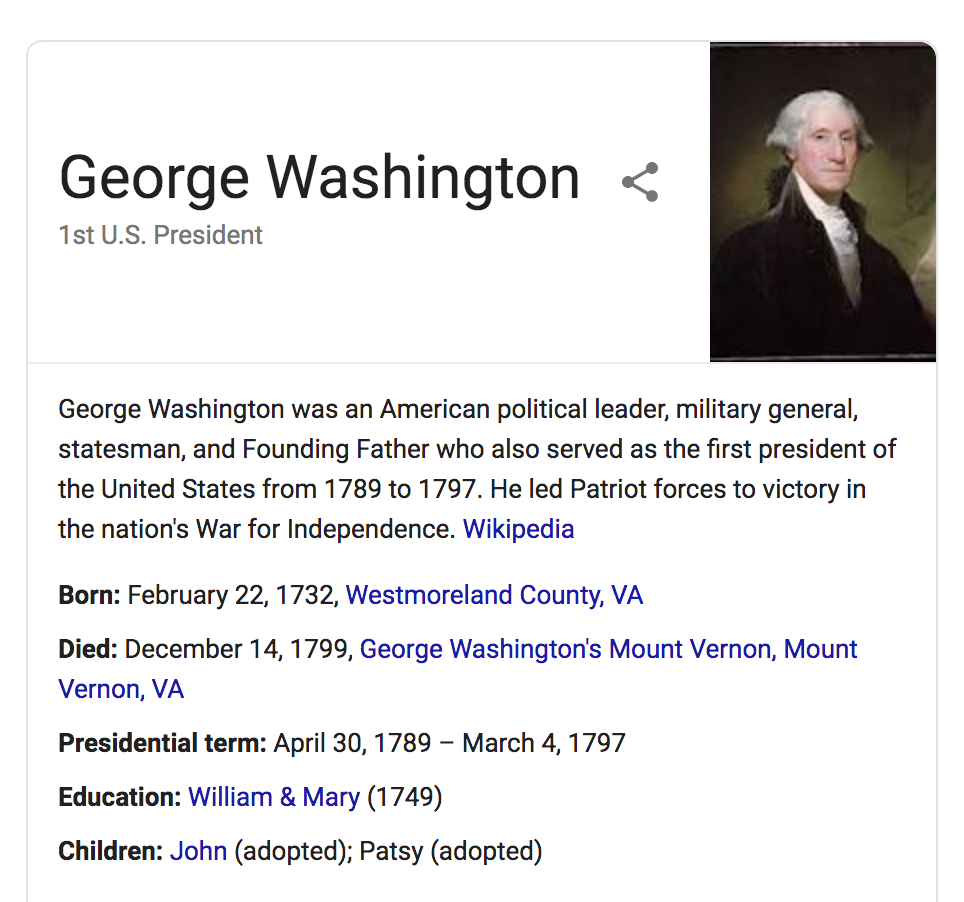
It is very rare for a different source to be used, but have been lucky enough to have a couple clients featured as sources for the knowledge panel (and many, many more for featured snippets which appear at the top). For the knowledge panel, they didn't do anything in particular, other than doing a good job with regular SEO in having intro paragraphs on their product and category pages.
If your site is being used as a source, I would say that is a net positive. It means your site is trusted and you are being given prominent visibility in an area most sites won't receive promotion.
For direct answers or featured snippets, Google has been known to source a variety of sites. They usually choose a site that is listed on page 1 that has formatting conducive to the way they like to display the data (bulleted lists, numbered lists, etc.). They've also been known to collect information from a variety of sources, then cobble them together to create their own "answer" without any attribution.
Featured snippets is an area where there is not always a net positive. Recent data shows that 49% of Google searches are no click. The good news from the report is that organic search clicks get 12x the traffic paid gets, but there are an awful lot of searches where a user doesn't click on a website.
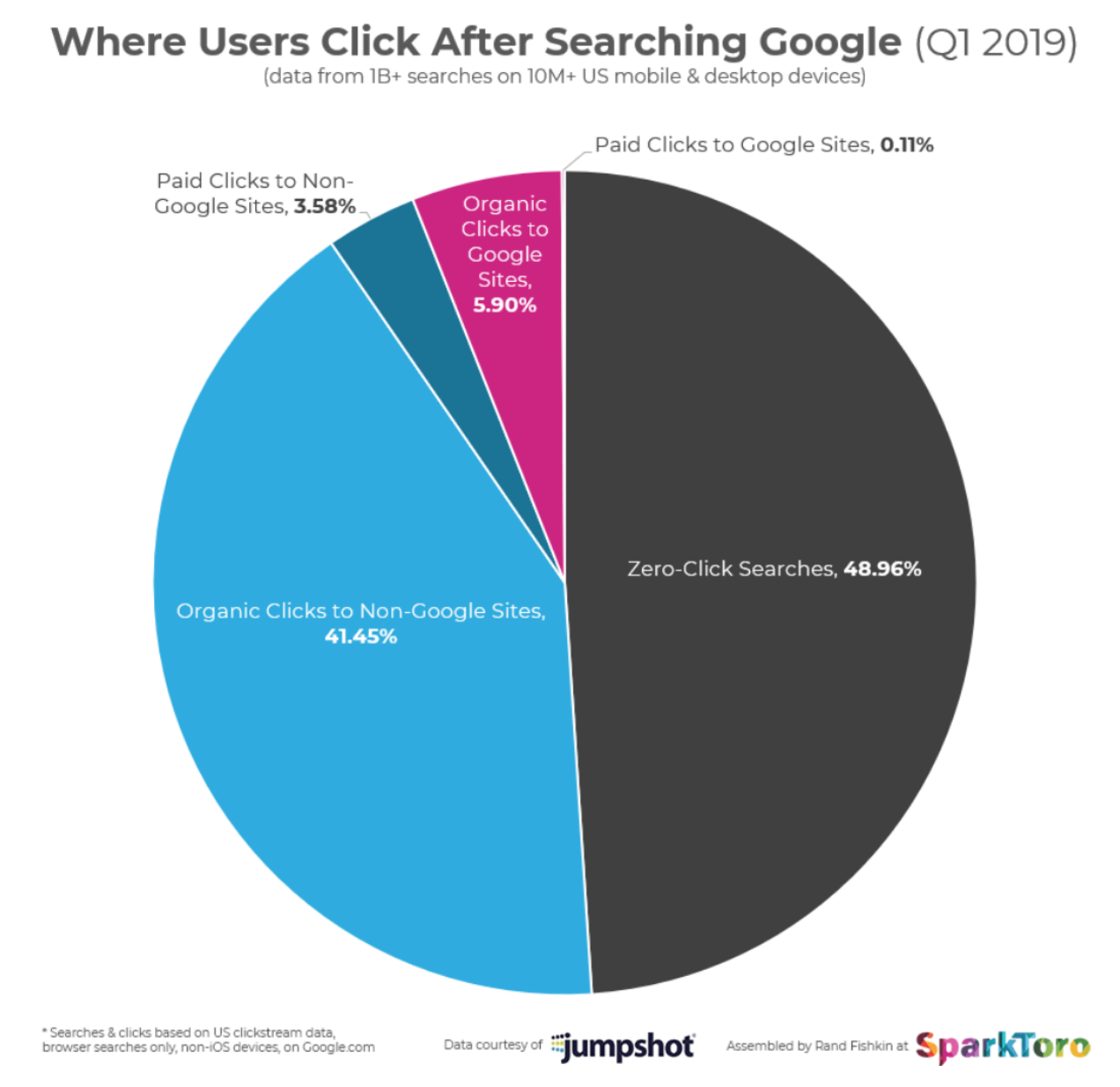
Featured snippet optimization & net positive discussions are a whole different conversation I'll have to follow up with at a later time.
Controlling Your Own Knowledge Panel
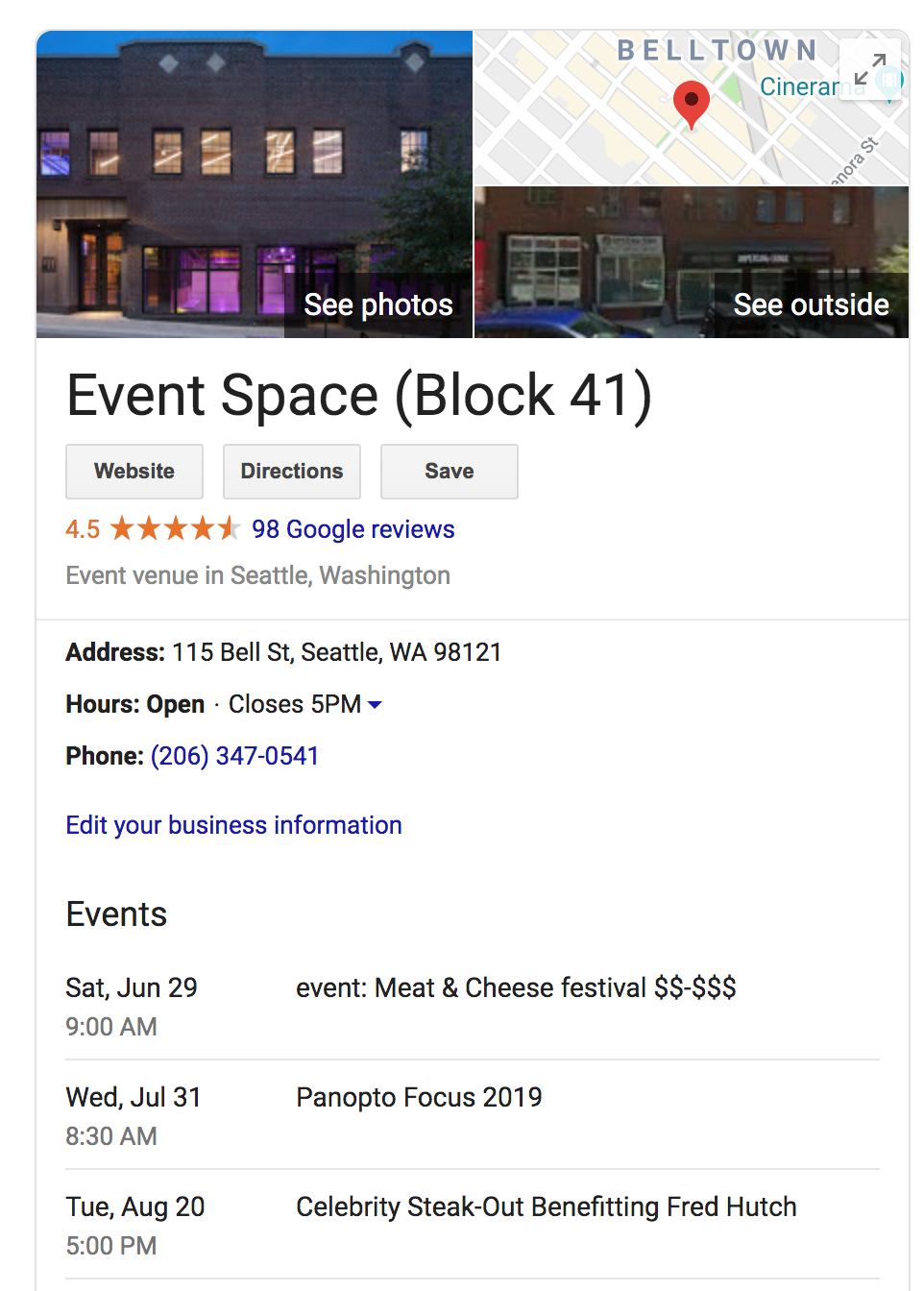 Businesses had little control over their listings in the past, but now have more control. For example, Block 41 in Seattle used to have just a map image and street view in their knowledge panel, but using the newer Google My Business service, they were able to add their:
Businesses had little control over their listings in the past, but now have more control. For example, Block 41 in Seattle used to have just a map image and street view in their knowledge panel, but using the newer Google My Business service, they were able to add their:
- Hours
- Website
- Description
- Photos (inside & outside)
- 360-degree virtual tours
- Categories
- Social links
- Timely posts
Some parts are still automated by Google, including the event listings, popular times, customer reviews, and customer photos. They could also add video, a booking button, and if they didn't have a website, they could generate one directly through Google My Business.
If you are not a business, but want some fixes to your knowledge panel, Google does provide a way to provide them with feedback or changes, but it is slow & doesn't always work.

Jun 24, 2019 - 06:10 PM
And of course, immediately after writing this piece, it comes out that Google is now testing knowledge panel displays without any attribution. Gotta love how fast SEO moves.
I wouldn't be too alarmed as there will be a backlash from their test. Also, Google tests things all the time, but implements them far less. Nothing to worry about at this point, but certainly something to share your feedback on so they don't start doing this as a practice.

Jun 25, 2019 - 09:05 PM
Another follow up: Google come out and stated that the knowledge displays without attribution was a bug. Also, we are now seeing lyric sources with links listed in Google results. For example:
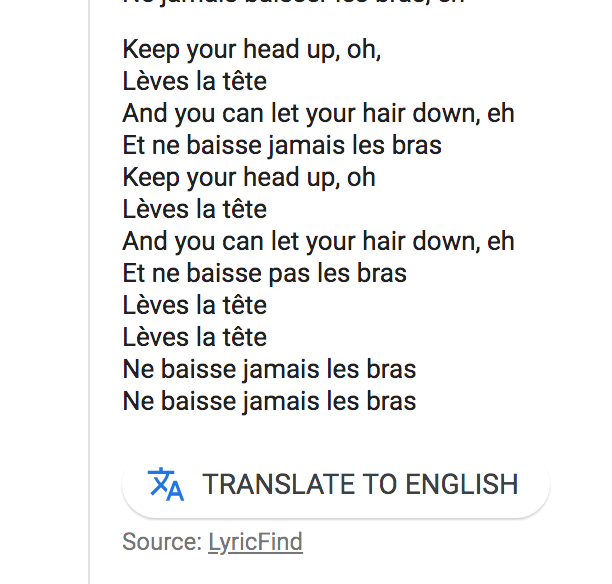

Aug 13, 2019 - 04:31 PM
SparkToro just published an interesting piece showing that for the first time, more than 50% of Google searches do not result in clicks.
https://sparktoro.com/blog/less-than-half-of-google-searches-now-result-in-a-cl
ick/
There is also a related discussion on Hacker News and the general consensus seems to be that Google is freeloading on other people's content. Here are two comments from users. From HN user Cyrus Sheppard:
I think what folks are missing is that a lot of these "zero-click" searches happen as a result of Google scraping your website, and displaying the results as a "featured snippet." Yes, they link to you below the featured snippet. No, more people don't click, because they've taken the answer from your website and displayed it right in their search results. For example: If I'm searching for "best nail for cedar wood" Google gives me the answer: STAINLESS STEEL - and I never had to click through to the website that gave the answer: https://bit.ly/2MdovdP • Yes, this is good for users (it would also be good for users if Netflix gave away movies free) • Overall, the publishers who "rank" for this query receive fewer clicks • Google earns more ad revenue as users stick around on Google longer Ironically, Google has a policy against scraping their results, but their whole business model is predicated off scraping other sites and making money off the content - in many cases never sending traffic (or significantly reduced traffic) to the publisher of the content.
Congress is aware of the issue and has taken Google to task for it, per the SparkToro article. And when you add all the instances where Google AMP is being used to serve pages the problem is even worse because clicks to a site get sneakily intercepted by the AMP page. I am not sure that most content publishers realize this is happening.

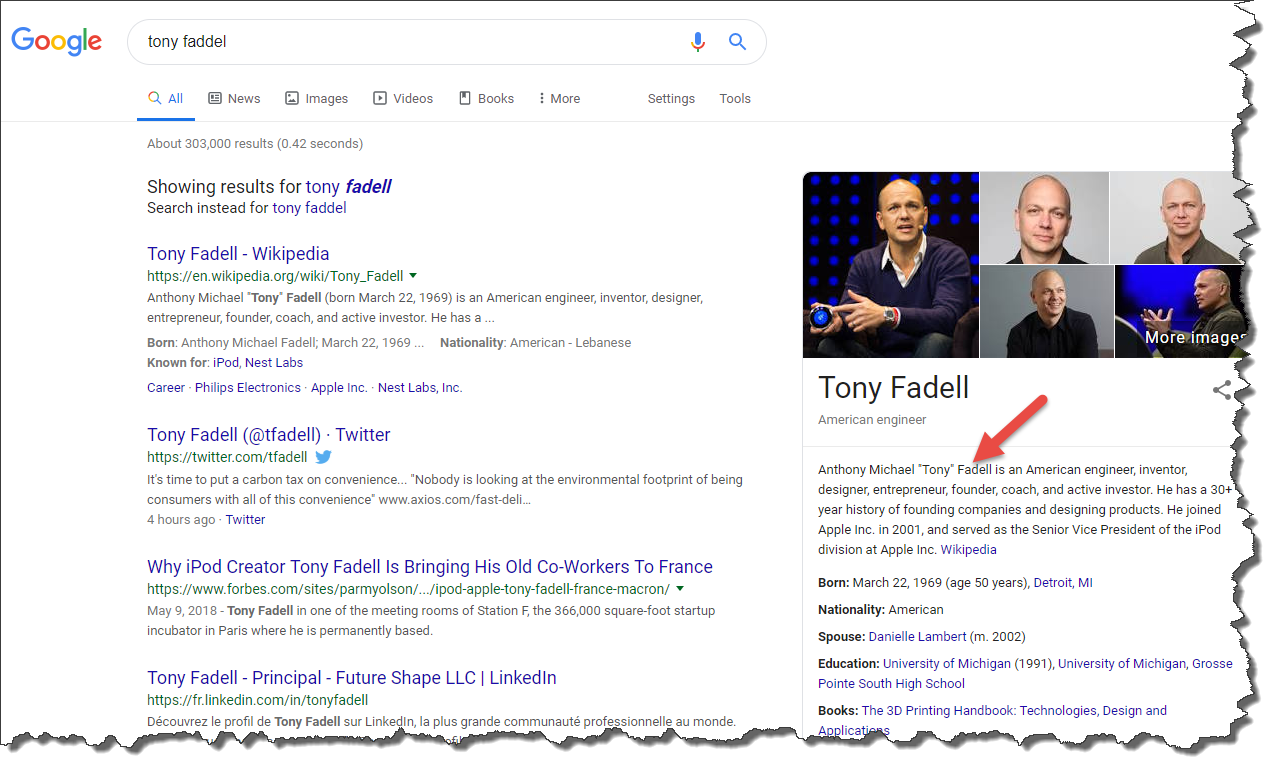






Add New Comment